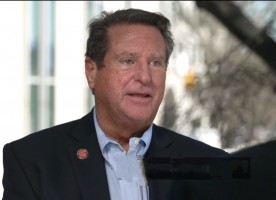Political discussions need more critical thinking in the current climate, negatively impacting discourse. It takes work to engage in thoughtful debates. Lawmakers rush political discussions with little discussion, undermining transparency, accountability, and thorough consideration of the issues. This often leads to poorly crafted legislation with unintended consequences.
Limited public input and rushed discussions can lead to policies that do not reflect the population's needs, giving political donors and lobbyists an undue influence. To their credit, Tennessee House education leaders did talk to stakeholders. We now watch and wait.
Wealthy individuals can manipulate lawmakers and silence the voices of ordinary Tennesseans, leading to policy decisions controlled by a select few. They can disregard popular will and skirt democracy to advance their agenda.
Legislation passed without proper debate and deliberation may need more legitimacy and erode public trust in government institutions. We need to prioritize a variety of viewpoints to make informed decisions, but Tennesseans need to drive Tennessee policy.
Look no further than those promoting universal vouchers in our state. They are a well-financed group that spends enormous amounts of money on lobbying and campaigns, making it almost impossible for the average taxpayer to be heard.
They do this because they have an open invitation to some of the highest offices in our state. A former Speaker of the House in Tennessee remains scheduled for trial. We must eventually deal with the culture of corruption, out-of-state political donors and lobbyists, outside influence, and special interests.
Public education is widely available in Tennessee, with almost 90% of children attending public schools. Public schools accept all students, regardless of academic background or ability. This inclusivity is a cornerstone of the U.S. public education system and ensures every child can receive an education. Social and economic factors can impact the quality of education and opportunities available to students.
It is accurate to say that support for school choices is growing. We support expanding public school choice options, such as magnet schools, district charter schools, career academies and expanded open enrollment policies. Public schools should collaborate more and communicate better. They should also engage with homeschooling families and offer vocational and technical programs through open enrollment policies. Universal vouchers are a different model.
Advocates of universal vouchers argue that they will enhance public school students' education quality. However, most students who would benefit from universal vouchers are already attending private schools. It is important to note that this is not a quick-fix solution to improve public schools. We must also look at state resources and determine what is currently feasible.
It is vital to understand that there is no universal voucher mandate statewide, and support for any voucher program is complex and subject to the program's structure. Polling questions are subject to how the question is asked and where they are asked. If they do, it is easy for taxpayers to debate: should taxpayers pay everyone’s private school tuition? Do private schools want less freedom or more government involvement?
The concept of universal vouchers, touted by Governor Bill Lee, will not improve public education in Tennessee if that is the goal. His plan should have included considerations of income, school quality, or eligibility parameters traditionally set for families/schools in need. Universal vouchers would be a subsidy and benefit private schools across the state. Lawmakers support school choice but fear retribution from universal voucher supporters with deep pockets.
Milton Friedman's voucher system proposed school choice and competition for quality education. Parents could choose which school to send their children to, and schools could choose which students to admit. However, concerns arise over discrimination and exacerbation of educational inequality if schools are allowed to charge tuition beyond the value of the voucher. Wealthier students would still have access to better schools, with students from low-income families remaining at a disadvantage. It is a point to consider in the proposed legislation.
Legislators must prioritize their constituents. Citizens must communicate their priorities to political leaders at every opportunity and vote. Children's needs should be the top priority in Tennessee’s education policy. Decisions must be made solely for the benefit of all students.
We must prioritize collaborative policymaking that considers the needs of Tennessee's children and educators. Let's engage in more debate before adopting any universal voucher proposal. Our democratic processes must be open, inclusive, and responsive to the people they serve.
##
JC Bowman is the executive director of Professional Educators of Tennessee.











